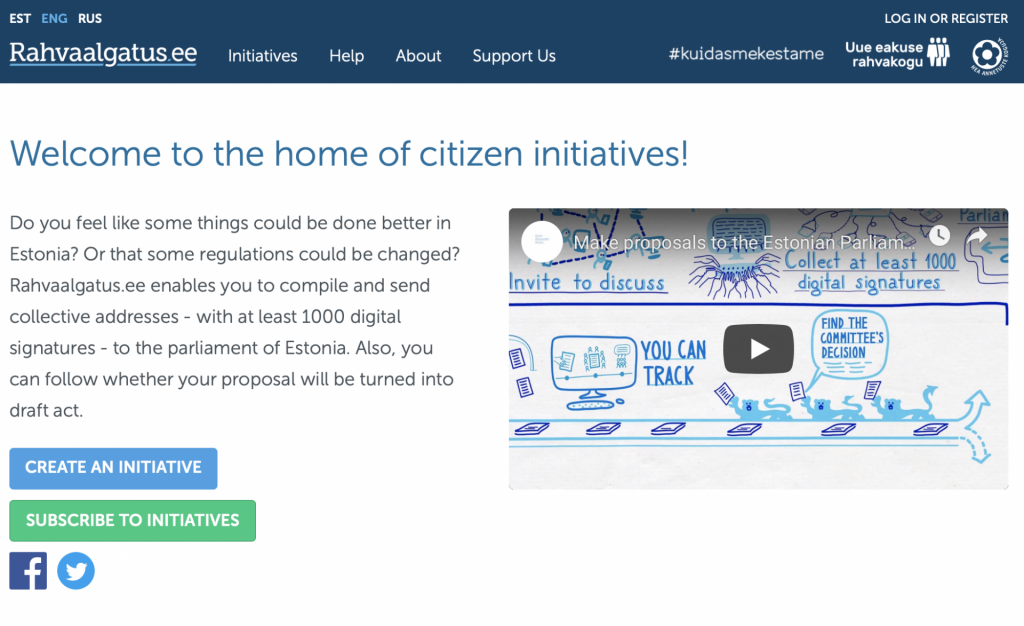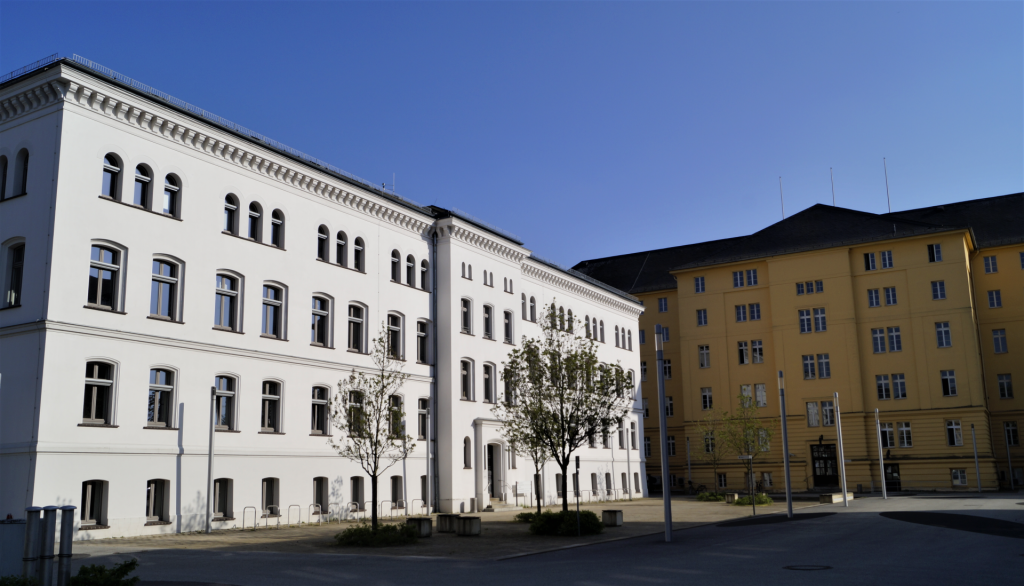Participatory Parliamentarism: the Case of the Estonian Citizens’ Initiative Portal
The Estonian Citizens’ Initiative portal (ECIP) is an e-participatory instrument allowing individuals to submit collective addresses to the parliament via an online platform. This encompasses proposing new ideas for laws and policies or suggesting changes to existing laws and policies. The e-participation portal is formally institutionalized through a cluster of laws and regulations addressing the…
Read MoreDecide Madrid: A Case Study on E-Participation
Carlos Delgado, Palacio de Comunicaciones - 47, CC BY-SA 3.0 Decide Madrid (DM) is the first e-participation platform that allows citizens, associations, NGOs and companies to be involved in the policy cycle in Madrid municipality. DM was launched in 2015 and allows citizens to make proposals, vote in citizen consultations, propose participatory budget projects, decide…
Read MoreNational consultations: A mix of old and new technology in Hungary
The Hungarian National Consultation website is an online platform that allows Hungarian citizens to submit answers to sets of questions posed by the government. “National Consultations” have been organized with some regularity since the Fidesz party came into power in 2010. They started as paper-based questionnaires sent out by mail to all households in the…
Read Moreminsak.no: An online petition platform for all Norwegian municipalities and regions
“minsak.no”, founded in January 2013, is an online petition tool that can be used for the submission of petitions at the regional and municipal level within the framework of §39a of the Norwegian Municipal Act. Paragraph 39a guarantees the citizens of Norway that local and regional legislative bodies have to deal with the petitioners’ proposal…
Read MoremeinBerlin: An integrative eParticipation platform for all administrative levels in Berlin
„meinBerlin” is the central eParticipation platform of the state of Berlin. Citizen participation procedures of all administrative units shall be realised via this platform, which makes meinBerlin the central ‘point of contact’ for all participation processes in Berlin. Various types of eParticipation initiatives can be conducted on the platform, including e.g. development plan procedures, public…
Read MoreParlement & Citoyens: an online platform connecting citizens and lawmakers for policy design in France
Romain Vincens, L’hémicycle du Sénat français en septembre 2009, CC BY-SA 3.0 Parlement & Citoyens (P&C) is an online platform “enabling citizens and legislators to work together to find solutions to [France’s] problems”. This website is a private e-participation initiative. The French context is characterized by a high e-participation index and a high-level of citizens’…
Read MoreDigital Transformation in German Multi-Level Governance – The Case of Digitalisation Labs on “Immigration and Emigration”
At present, the digital administrative landscape in Germany has been dominated by isolated solutions and the German Online Access Act (OZG) seeks to support harmonisation and better collaboration by creating uniform standards across administrative levels. It obliges the federal administration, the Länder and the municipalities to offer their administrative services digitally by the end of…
Read MoreeNAP: An Electronic Sustainability Assessment Tool for the Ministerial Bureaucracy in Germany
In the spring of 2018, the German government introduced a web-based tool called eNAP that aims to facilitate and improve the sustainability impact assessment (SIA) as conducted for new laws and regulations, and that can be used by ministry officials and policy makers to carry out the SIA. In Germany, evaluating potential environmental, economic and…
Read MoreThe National Adaptation Geo-Information System and its Effect on Collaboration and Policy Design in Hungary
The National Adaptation Geo-Information System (NAGiS) was launched in 2016 after three years of intensive cooperation among several units at different levels and sectors in the Hungarian public administration as well as foreign actors (the EEA Fund and the Norwegian Directorate for Civil Protection and Emergency Planning). Aims and goals Observed changes in climate…
Read MorePleio: An Open Source Collaboration Platform for Public Administrations and Public Policy in The Netherlands
At the beginning of 2011 Pleio was officially launched. The platform started out small, as some sort of a social media side project owned by a select group of Dutch public servants. Over the last eight years, however, the ICT tool has experienced a strong expansion and professionalization. By the start of 2019 the platform…
Read More









